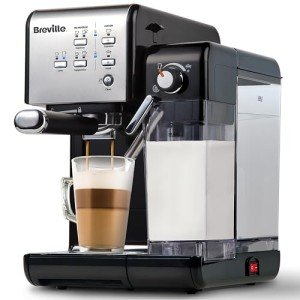Home Use Espresso Machines: A Comprehensive Guide
Espresso machines have actually become a staple in many homes as coffee enthusiasts seek to replicate café-quality brews in the comfort of their cooking areas. The rise in appeal has resulted in a varied market filled with different designs, functions, and costs. This article intends to offer a helpful summary of home use espresso machines, assisting readers navigate their choices efficiently.
Understanding Espresso Machines
Espresso machines work by requiring hot water through finely-ground coffee under high pressure, resulting in a concentrated coffee drink understood as espresso. There are numerous types of espresso machines classified based on their developing methods and level of automation. The most typical types consist of:
- Manual Espresso Machines: These require the user to control the pressure and water flow, enabling a more hands-on coffee-making experience.
- Semi-Automatic Espresso Machines: These provide automatic control over water pressure, while the user by hand grinds and tamps the coffee.
- Automatic Espresso Machines: With the push of a button, these machines immediately manage the circulation of water, making it much easier to brew espresso with constant outcomes.
- Super-Automatic Espresso Machines: These all-in-one machines deal with grinding, tampering, developing, and even milk frothing, making them ideal for users trying to find benefit.
- Pill or Pod Machines: These use pre-packaged coffee pods to develop espresso with minimal effort, but they restrict option in brewing methods and tastes.
Table: Comparison of Espresso Machine Types
| Type | Control Level | Alleviate of Use | Cleaning up Level | Perfect For |
|---|---|---|---|---|
| Manual | User-controlled | Moderate | High | Coffee purists |
| Semi-Automatic | Partial automation | Moderate | Moderate | Home baristas |
| Automatic | Completely automated | Easy | Low | Hectic people |
| Super-Automatic | Totally automated | Extremely simple | Really low | Convenience candidates |
| Capsule/Pod | Fully automated | Extremely simple | Extremely low | Casual drinkers |
Key Features to Consider
When picking a home use espresso machine, it's important to consider various features that can substantially affect the quality of espresso and user experience.
- Pressure: Look for machines that offer a minimum of 9 bars of pressure, as this is thought about optimal for brewing espresso.
- Boiler Systems: Single vs. dual boiler systems identify temperature stability and the ability to brew espresso and steam milk simultaneously.
- Grinder: Integrated mills allow for freshly ground coffee, which improves flavor. Think about machines with adjustable grind settings.
- Milk Frother: For those who delight in coffees and lattes, an integrated steam wand or automatic frother is vital.
- Size and Design: Consider your cooking area area and aesthetic choices. Machines come in different sizes, from compact to big setups.
- Cost: Home espresso machines can range from a few hundred to a number of thousand dollars, so it's important to develop a budget before checking out choices.
Pros and Cons of Home Use Espresso Machines
| Pros | Cons |
|---|---|
| Convenience of brewing coffee in the house | Preliminary investment can be high |
| Quality of espresso is often superior | Needs some ability, specifically with manual machines |
| Ability to experiment with tastes | Maintenance and cleansing can be labor-intensive |
| Can save money in the long run | Not all machines will match every coffee preference |
Upkeep and Cleaning Tips
Preserving an espresso machine is important for lengthening its life and guaranteeing consistent brew quality. Here are some useful pointers:
- Regular Descaling: Minerals from water can develop in the machine. check here -3 months, depending on water firmness.
- Daily Cleaning: Rinse portafilters, baskets, and steam wands after each use to avoid coffee oils from constructing residue.
- Use Filtered Water: This can assist decrease mineral accumulation and improve the taste of coffee.
- Replace Gaskets and Seals: These components may use out in time and must be replaced to preserve pressure and efficiency.
- Check out the Manual: Each machine has specific care guidelines; following these will ensure durability.
Frequently Asked Questions About Home Use Espresso Machines
Q1: What is the very best budget espresso machine?The best budget espresso machine often depends on specific needs, however designs like the DeLonghi EC155 or the Breville Bambino are popular amongst users for providing great worth. Q2: How long do home espresso machines typically last?With proper upkeep, home espresso machines can last anywhere from 5 to 15 years, depending upon the quality of the machine and frequency of use. Q3: Can I make coffees and lattes with any espresso machine?While most espresso machines can make coffees and lattes, having a trustworthy
steam wand or frother is necessary for attaining the ideal milk texture.
Q4: Are super-automatic machines worth the investment?For those who focus on benefit and quick brewing, super-automatic machines can be worth the financial investment, though they may do not have some customizability in brew strength and flavor. Q5: What types of coffee beans are best for espresso?While personal choice plays a role, beans identified as" espresso "blends are typically roasted darker, creating abundant flavors and a velvety texture when brewed.
Buying a home espresso machine can change the everyday coffee routine into something special, raising home brews to café quality. By comprehending the various kinds of machines, crucial features to think about, upkeep needs, and weighing the
advantages and disadvantages, consumers can make informed decisions that match their specific preferences. As the espresso culture continues to grow, no matter the choice, every brew can be a scrumptious experience waiting to be appreciated.

